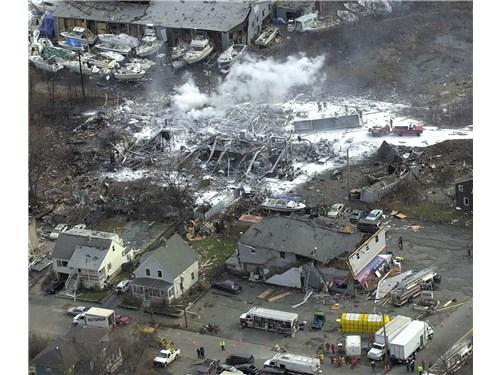Participate in Your Local or Regional Emergency Planning Committee (L/REPC)
Emergency Planning Committees are responsible for protecting their communities from incidents involving hazardous materials. This involves developing emergency response plans and educating the community about chemical facilities and the actions that could be taken if there is a chemical accident.
Facilities that use and store large quantities of chemical are expected to support and participate in L/REPC and to develop emergency response plans.
View the U.S. Emergency Planning and Community Right to Know (EPCRA) Requirements
Massachusetts State Emergency Response Commission (SERC)
MA Emergency Management Agency (MEMA)
Computer-Aided Management of Emergency Operations (CAMEO) software applications to plan for and respond to chemical emergencies
Develop a Facility Emergency Plan Summary
Use OTA's Facility Emergency Plan Summary Template to create your own emergency plan summary. Then, share it with your local fire department, health department, and emergency management officials, and maintain a copy in a safe location on-site. Make sure to review it annually with relevant staff, and make updates as needed.
